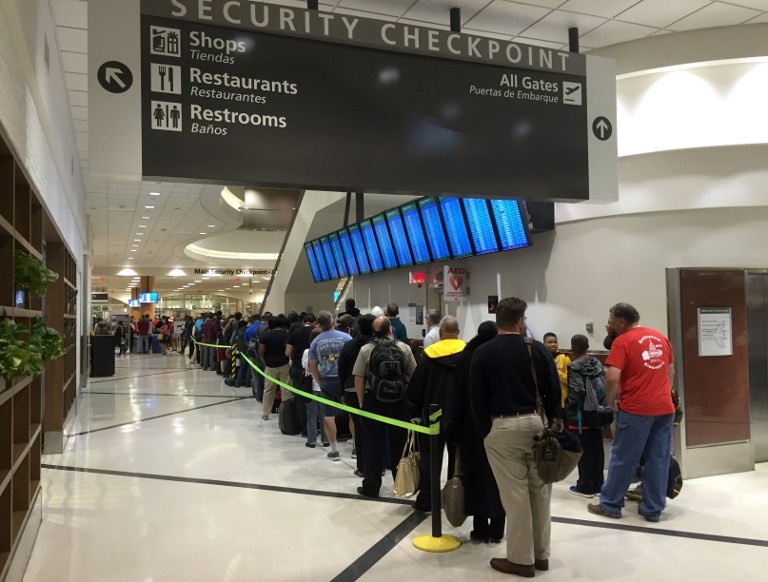Popular Reads
Top Results
Can't find what you're looking for?
View all search resultsPopular Reads
Top Results
Can't find what you're looking for?
View all search resultsUS customs officers need 'reasonable suspicion' for searches: Judge
Change text size
Gift Premium Articles
to Anyone
U
S customs officers cannot search the computers and phones of people arriving in America unless they have "reasonable suspicion," a federal judge ruled Tuesday in a decision praised by rights activists.
Eleven travelers whose electronic equipment was searched for no apparent reason filed a complaint against the United States government in September 2017.
They were backed by the powerful American Civil Liberties Union (ACLU) and the Electronic Frontier Foundation, a digital rights advocacy organization.
In a 48-page judgment, Boston Judge Denise Casper said formal search warrants are not necessary but suspicionless searches by the US Customs and Border Protection (CBP) violated the Fourth Amendment, which protects individuals from arbitrary searches and seizures.
"This ruling significantly advances Fourth Amendment protections for the millions of international travelers who enter the United States every year," said Esha Bhandari, an attorney with the ACLU.
Read also: US customs heightens searches on electronic device: Report
"By putting an end to the government's ability to conduct suspicionless fishing expeditions, the court reaffirms that the border is not a lawless place and that we don't lose our privacy rights when we travel," the lawyer added.
The decision comes against the backdrop of tougher US migration regulations under President Donald Trump's administration.
According to the ACLU, the CBP conducted more than 33,000 searches of electronic equipment in 2018, almost four times more than in 2015.
In September, Palestinian teenager Ismail Ajjawi made headlines after he was detained for eight hours at Boston's airport and refused entry into the United States after officers disapproved of his friends' political comments on social media.
Ajjawi, who was traveling to start classes at Harvard University, was sent back to Lebanon before later succeeding in gaining entry to the US after his case triggered wide condemnation.







